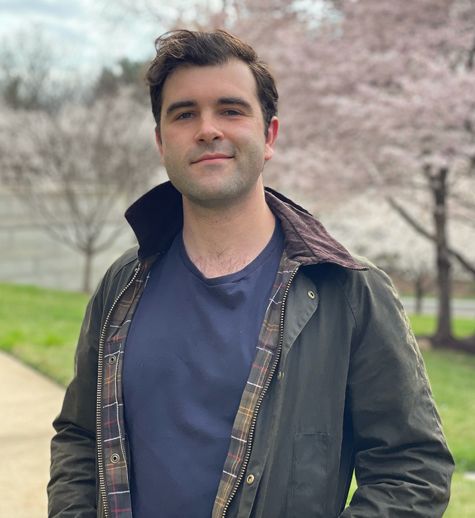Early Career Scientist Spotlight
Dr. Benjamin Farcy (he/him/his)
Planetary Geochemist
Planetary Environments Laboratory (699)
What inspired you to pursue a career in planetary geochemistry?
Growing up on the north shore of Chicago, you’d think that it’s a pretty urban or suburban environment without much nature to it. However, there’s a lot of beautiful prairie land outside of the town centers. I spent a lot of time in these prairies when I was younger and they really became a part of my outlook on life. I grew up camping in the Midwest, so spending time in nature was a regular part of my upbringing. Then I had a high school environmental science teacher who really taught me to understand nature on a more fundamental level, through chemistry and physics and biology, and how all these elements of nature interacted. Everything I experienced through my time growing up around nature all just started making sense, and I was hooked! I went to school for Environmental Science, then switched to focus on Geology, and I’ve been on that trajectory ever since. For me, it’s all about getting a more fundamental understanding of the natural world around me.
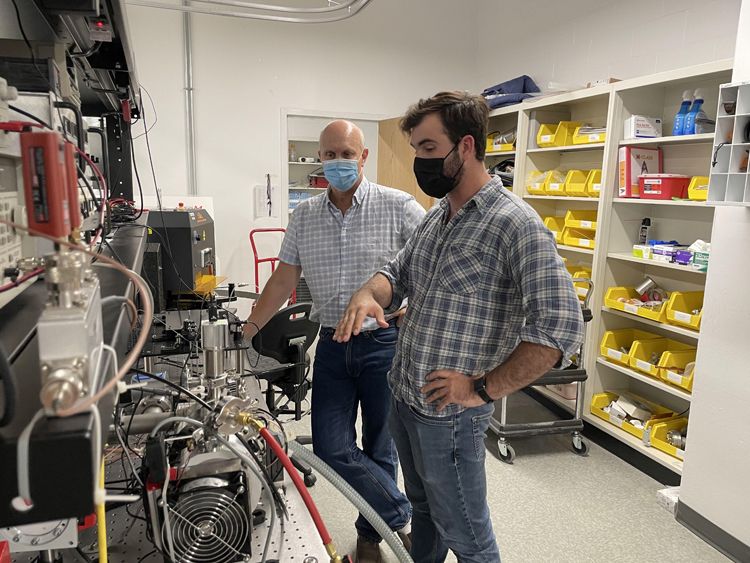
Credit: Benjamin Farcy
What is your research focus?
I wear a lot of hats in my role at GSFC, but my main two are that I am a geochemist, focusing on the history of planetary bodies as told through the chemical systems in rocks, and I’m an instrument scientist, constructing a miniature mass spectrometer for planetary geochemistry. I did my Master’s on Martian geochemistry, doing experimental work on how slight chemical differences in the Martian mantle lead to melting and volcanics, which produce the basaltic Martian meteorites we have today. Then I came here to Goddard, where I got introduced to spaceflight instruments for chemical analysis throughout the solar system. I became well versed in mass spectrometry and got an enormous amount of hands-on experience with these incredibly powerful and versatile devices.
Then during my Ph.D., I essentially worked out a whole NASA planetary mission, including doing some geochemical studies of the surface and interior of the Moon, picking some useful landing sites, and building a prototype mass spectrometer for a hypothetical lunar mission. The Moon is so interesting to me, because the nearside and farside hemispheres of the Moon have completely different formation histories, and we’re not exactly sure why. We only have return samples of the nearside, so our understanding of how the Moon formed is biased to only one hemisphere. Someone needs to get some sample analyses of farside rocks so we can know how a planetary body like the Moon forms in such an asymmetric way.
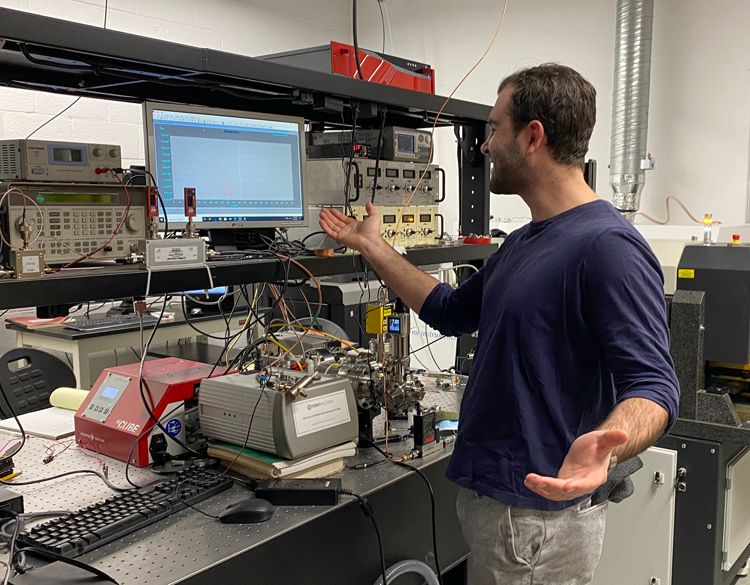
Credit: Ricardo Arevalo
How did you end up working at NASA Goddard?
I first came to Goddard in 2015 as a summer intern. I had just finished my master’s, and did a three-month stint collecting data on a project related to astrobiology, which was an eye-opening experience to be far out of my previous research area. Then, as my internship ended, I went to my boss and basically said “I’ve got nothing else lined up after this, please let me stay”, which he generously did. So, a three-month internship turned into two and a half years in my lab group before I left for my Ph.D. at UMD.
In my last year of my Ph.D., we got a big grant to build a spaceflight-qualified version of our instrument that I built during grad school, which is what I’m working on now. That made it much easier for me to come back to Goddard, as I had my own funding ready to go when I moved in. Hopefully in the not-too-distant future, this instrument of ours will actually land on the Moon!
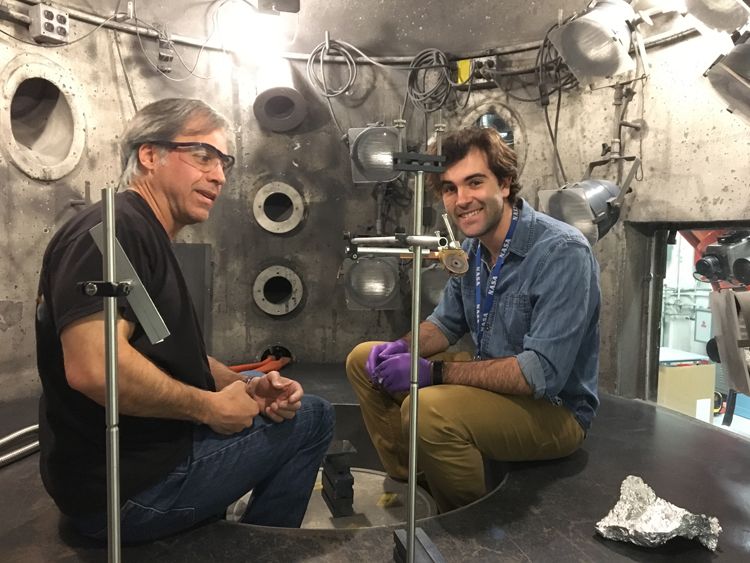
Credit: Benjamin Farcy
What aspect(s) of your work are you most passionate about?
I love the fact that our team is innovating something new that nobody has ever done before. We are building a plasma-based mass spectrometer, which can get hot enough to process rocky material for chemical analysis via mass spectrometer, but it’s much smaller and more efficient than commercial versions. The analog for what we’re building is called inductively coupled plasma mass spectrometry (ICP-MS), which generates a plasma that can get hotter than the surface of the sun, but uses huge amounts of power and gas to do it. We’ve figured out a way to generate this high power plasma source with 50-100x less power and gas, meaning we can now use it for a tiny spaceflight instrument. That’s a huge accomplishment, and it could potentially open a new door for in situ geochemistry on planetary surfaces.
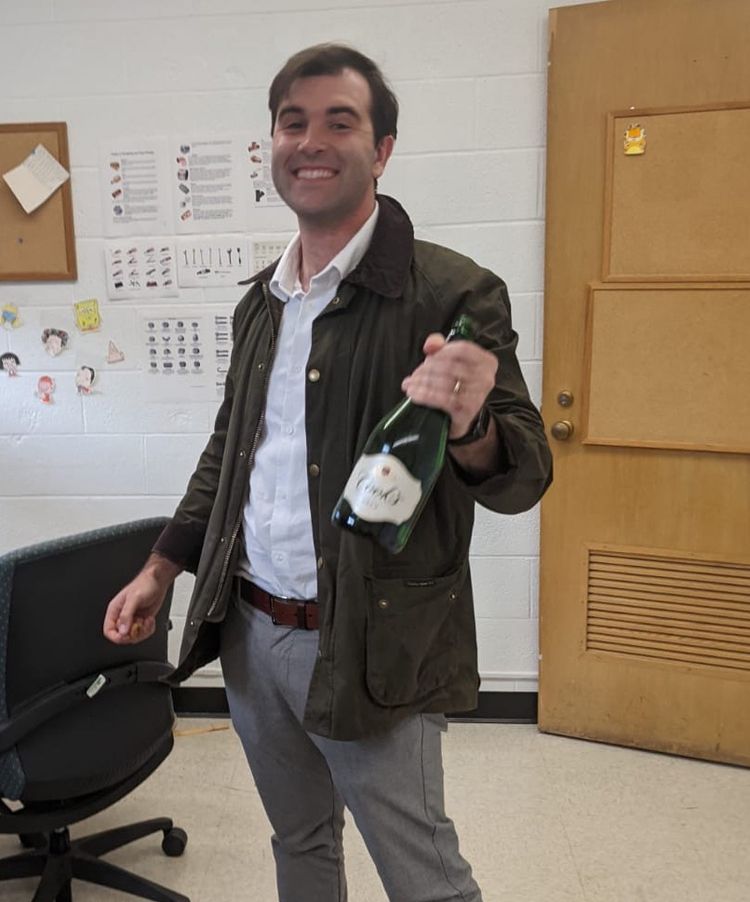
Credit: Benjamin Farcy
If you were to expand your current research focus, what new topic(s) would you explore?
I am super interested in the composition, structure, and dynamics of the deep interior of Venus. It’s an amazing planetary system that we know next to nothing about. Does it have a similar planetary formation history to Earth? Is there mantle convection that drives plate tectonics? Does it have a hot interior that melts and brings deep mantle material to the surface? If so, what does that surface material tell us about the mantle? The number of questions about the geology and chemistry of the Venus mantle are pretty endless.
What is one space mission that you are particularly excited about, and why?
I am so excited for the Artemis missions! When NASA first sent astronauts to the Moon during the Apollo missions, that was a world-changing event. We as a country really defined ourselves and everything we’re capable of through that incredible feat. Just being able to show ourselves that we still have that muscle memory, and that we get to relive that experience of seeing humans on the lunar surface, is going to be such a special event.
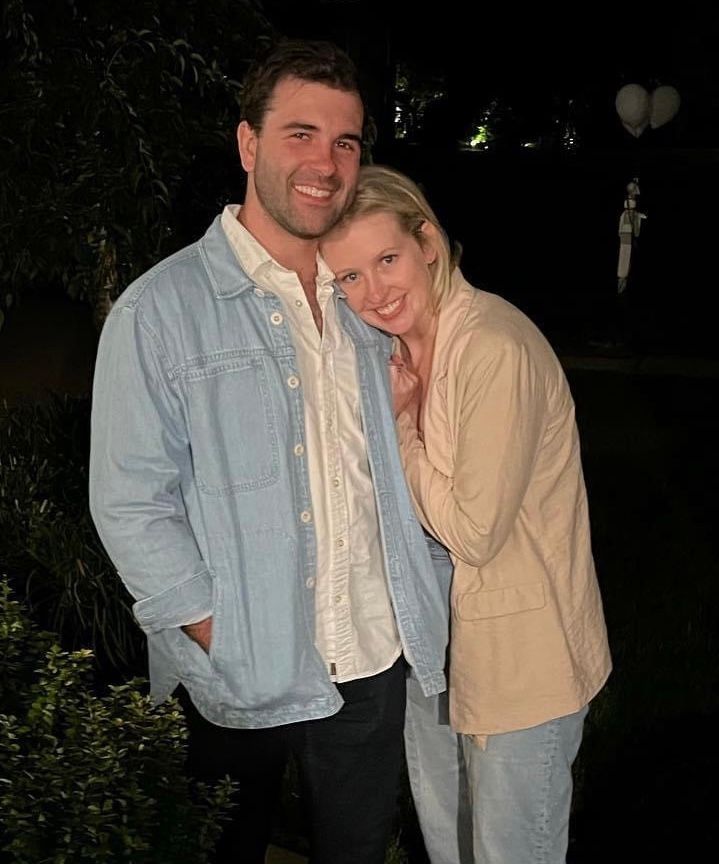
Credit: Benjamin Farcy
Tell us about a unique or interesting component of your work-life balance.
My wife and I have been able to buy a house in Washington DC, which in this crazy housing environment, was not an easy feat. It’s even harder to fix it up, but my job at NASA has taught me a lot of useful skills about being handy. It turns out building a mass spectrometer is 90% plumbing and electrical work, which carried over really well when I had to figure out how to redo my bathroom or install a bunch of new lighting. Plus our house has a tiny little square of yard in the front, which came with a pretty useless patch of grass. I ended up tearing that grass up and planting a garden of native prairie plants, so now I’ve got a little bit of that same natural environment that got me into science in the first place.
Biography
Home Town:
Highland Park, IL
Undergraduate Degree:
B.S. in Geology, Indiana University, Bloomington IN
Post-graduate Degrees:
M.Sc in Geology, Southern Illinois University, Carbondale IL
Ph.D in Geology, University of Maryland, College Park MD
